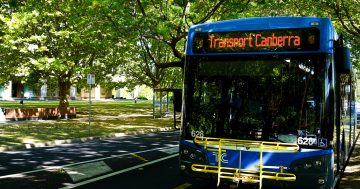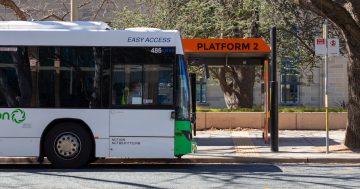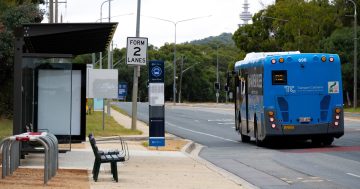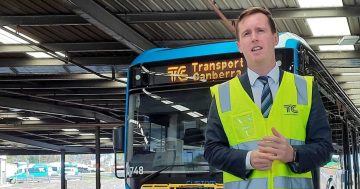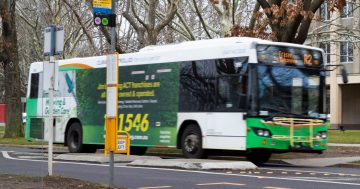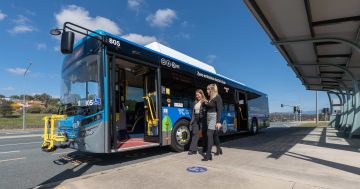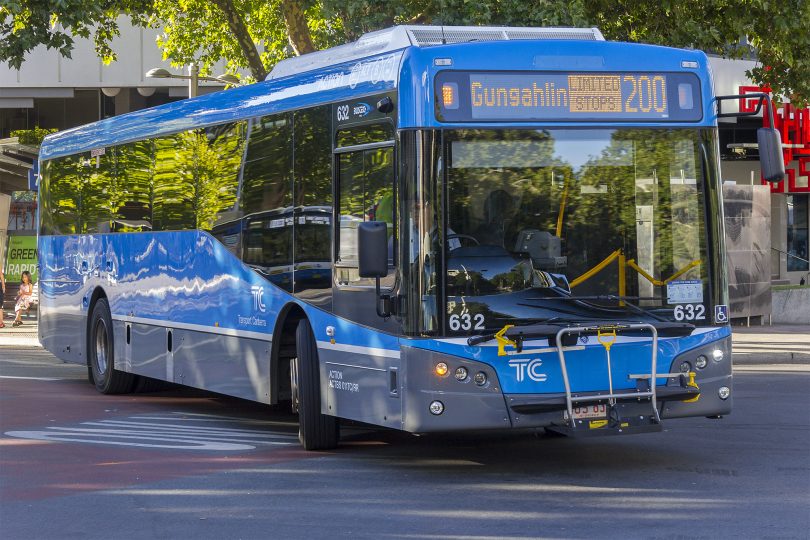
Commuters expect Transport Canberra’s buses to turn up, on time. File photo.
Everybody in this town will have their own now apocryphal stories about Canberra’s weekend ghost buses, the ones that never arrive because of a lack of drivers, despite what the timetable might say.
For my son, it was being left stranded in the city and Woden after visiting a friend in the north, and trying to make it home to Weston Creek. It was an experience that galvanised him to get his driver’s licence as soon as possible so he didn’t have to gamble on a notoriously unreliable service.
That was a long time ago now and yet with Canberra, as we are so often told, maturing into a city proper and the Government touting a new integrated public transport network, the evaporation of weekend services is still happening.
Last weekend (4-5 May) Transport Canberra had to cut 4 per cent of services due to not enough drivers volunteering for shifts. With 36 driver duties not covered, 148 out of the scheduled 3721 services did not happen.
It’s a situation that has been the bane of governments over the years who have tried to wrangle the ACT’s bus drivers into a compulsory seven-day roster but have met consistent intransigence from the Transport Workers Union, which is prepared to go to the picket line over any threat to voluntary weekend shifts.
Late last year Transport Canberra backed away from demands for compulsory weekend work in its Enterprise Agreement negotiations with the TWU in the face of industrial action, something the Government would have been eager to avoid in the lead-up to launching the new transport network.
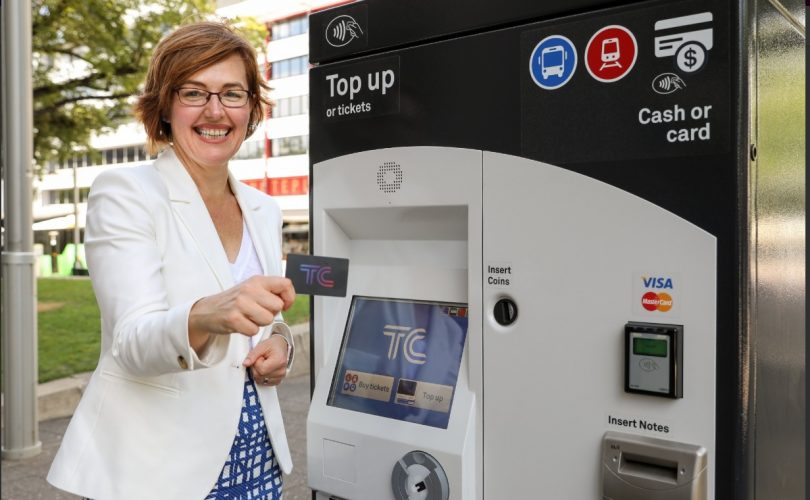
Transport Minister Meegan Fitzharris. The voluntary weekend roster is undermining her attempts to establish a reliable and efficient service. Photo: Transport Canberra.
Transport Minister Meegan Fitzharris insists the TWU had committed under the terms of the new Enterprise Agreement to ensure that all weekend duties were covered at all times.
“We look forward to continuing to work with the TWU and their members to help ensure they deliver on their commitment and help us deliver a seven-day network for Canberrans,” she said this week.
But TWU ACT branch secretary Klaus Pinkas has dashed any hopes this is the case by declaring the relevant clause was but a hangover from agreements from the 1990s and meant nothing.
What he wants are more drivers recruited to cover the increased services of the new network and Ms Fitzharris says Transport Canberra is busy doing just that.
She said more drivers for both buses and light rail were being recruited and ‘we hope that over time we can meet the community’s expectations with our weekend services’.
This is not the nineties and the community’s expectation is that the buses turn up as per the timetable, unless there is a mechanical reason why it cannot.
It is simply not good enough for a Minister to have to rely on the goodwill of drivers when she is trying build a reliable and efficient public transport network in a growing city where the car remains king, partly due to attitudes like the TWU, which refuses to join other service industries where weekend work is not optional.
Every cancelled service translates into the loss of long-term customers, and continues to damage public transport in the ACT, something the TWU should consider when it next thinks about holding commuters to ransom.
Yes, the loss of a worker condition and potential overtime pay is a serious thing but for the overall health of the public transport system and its future in Canberra. Which is why it’s time for the TWU and Transport Canberra to get creative for a win-win solution.
Then the long-suffering weekend commuter will be a winner too.












